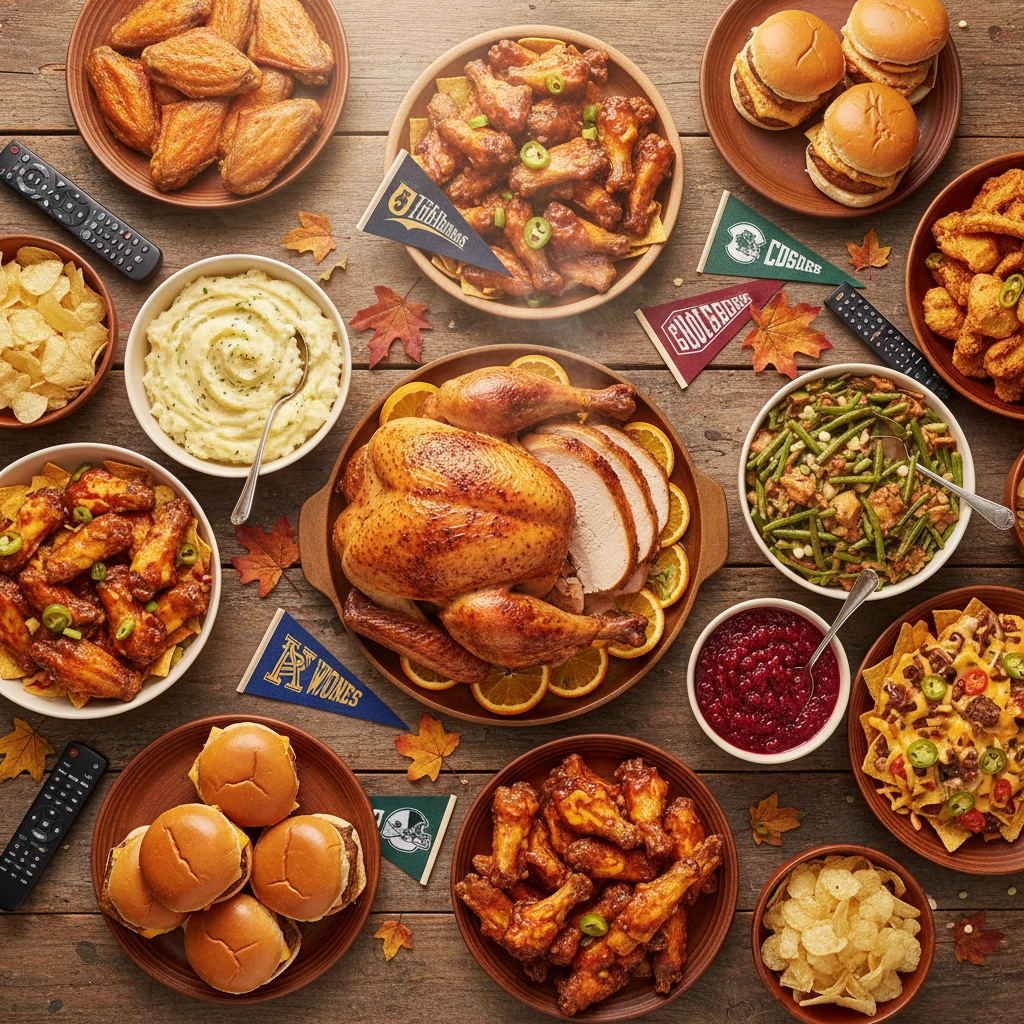Sports bring people together in ways that few other activities can match. When friends gather around a television to watch the big game, they create something more meaningful than simple entertainment. This phenomenon becomes particularly evident during Fan Friendsgiving celebrations, where chosen friends unite around shared sports traditions and team loyalties.
Friendsgiving represents a modern twist on traditional holiday gatherings. Instead of obligatory family meals filled with potential tension, friends who share common interests and values come together to celebrate. Sports provide the perfect centerpiece for these gatherings, offering built-in entertainment, conversation starters, and emotional investment that keeps everyone engaged.
The Evolution of Sports-Centered Friendsgiving
The concept of Friendsgiving has gained significant momentum in recent years. Many sports fans now organize these gatherings specifically around major games, creating new traditions that blend holiday celebration with athletic competition. These events allow participants to fully embrace their fandom without worrying about conflicting team loyalties or disapproving relatives.
Unlike traditional family gatherings where sports might create division, Fan Friendsgiving celebrations bring together people who already share similar interests. The result is an environment where team chants, face paint, and passionate commentary are not just accepted but encouraged.

Building Lasting Connections Through Shared Experiences
Sports traditions serve as powerful social catalysts. When friends gather to watch games together, they create shared memories that extend far beyond the final score. These collective experiences foster genuine connections and build lasting relationships.
The emotional investment in sports provides a unique bonding mechanism. Friends celebrate victories together and console each other during defeats. This shared emotional journey creates deep connections that strengthen over time. The highs and lows of sports fandom become shared experiences that friends reference for years to come.
Research shows that people form stronger social bonds when they experience intense emotions together. Sports provide exactly this type of emotional intensity. Whether celebrating a last-second touchdown or lamenting a missed field goal, these moments create powerful memories that bind friends together.
The Psychology Behind Sports Traditions
Shared sports traditions tap into fundamental human needs for belonging and community. When friends develop rituals around watching games together, they create a sense of tribal identity that satisfies deep psychological requirements.
These traditions often involve specific foods, seating arrangements, clothing choices, or pre-game activities. While these might seem trivial, they serve important psychological functions. They create predictability and comfort while reinforcing group identity and belonging.
The ritualistic nature of sports traditions also provides structure to social gatherings. Friends know what to expect, which reduces anxiety and increases enjoyment. This predictability allows people to relax and focus on connection rather than logistics.

Technology's Role in Modern Fan Friendsgiving
Modern technology has transformed how friends connect around sports. Social media platforms now allow real-time sharing of game moments, extending the Fan Friendsgiving experience beyond physical gatherings.
Friends who cannot attend in person can still participate through video calls, group chats, and social media interactions. This technological integration ensures that geography does not limit participation in shared sports traditions.
Fanz recognizes this evolution and provides tools specifically designed for sports social interaction. The platform enables fans to create groups, share content, and maintain connections between games. This technology bridges the gap between in-person gatherings and ongoing fan community engagement.
Creating Inclusive Sports Communities
One of the most valuable aspects of Fan Friendsgiving celebrations is their potential for inclusivity. These gatherings can welcome newcomers to sports fandom and help them develop appreciation for the games and traditions.
Friends often serve as sports mentors, explaining rules, sharing team histories, and introducing newcomers to fan culture. This educational aspect creates opportunities for relationship building while expanding the fan community.
The social aspect of sports appreciation often proves more important than individual athletic knowledge. Many people develop genuine love for sports through the social connections they form around games rather than innate interest in athletic competition.
Traditions That Transcend Individual Games
Successful Fan Friendsgiving celebrations create traditions that extend beyond single events. Friends might establish annual gatherings, develop signature foods or drinks, or create ongoing friendly competitions that span entire seasons.
These extended traditions provide multiple touchpoints for connection throughout the year. Friends might text each other during games even when not together, reference inside jokes from previous gatherings, or plan future events around upcoming matchups.
The anticipation and planning involved in maintaining these traditions creates additional bonding opportunities. Friends coordinate schedules, plan menus, and discuss expectations, all of which strengthen relationships outside of actual game viewing.

The Commercial and Cultural Impact
Fan Friendsgiving celebrations represent a significant cultural shift in how Americans approach both sports consumption and social gathering. This trend has commercial implications as businesses adapt to serve these new social patterns.
Restaurants and bars now specifically cater to Friend groups rather than just families or couples. Streaming services offer features that enable synchronized viewing for remote friends. Food delivery services provide group ordering options designed for sports gatherings.
This cultural evolution demonstrates the power of sports to drive social innovation. As fan communities continue to evolve, they create new opportunities for connection and celebration that extend far beyond traditional family structures.
Building Your Own Fan Friendsgiving Tradition
Starting a Fan Friendsgiving tradition requires minimal planning but can provide years of meaningful connection. Begin with a small group of friends who share team loyalties or sports interests. Choose a significant game as your inaugural event and establish basic logistics.
Consider creating simple traditions that can evolve over time. This might include signature foods, decorations in team colors, or simple rituals like predictions before each game. The key is consistency rather than complexity.
Document these gatherings through photos and social media posts. These records become part of the tradition itself, allowing friends to reminisce and track the evolution of their celebrations over time.
The Lasting Value of Shared Sports Traditions
Fan Friendsgiving celebrations demonstrate that sports serve as more than entertainment. They provide frameworks for building meaningful relationships and creating lasting memories with chosen communities.
These traditions offer alternatives to family-centered holiday celebrations while maintaining the social and emotional benefits of shared experience. They allow adults to create their own meaningful traditions based on current relationships and shared interests.
The social connections formed through sports traditions often prove more durable than casual friendships. The emotional investment and shared experiences create bonds that withstand time and distance. In an increasingly disconnected world, Fan Friendsgiving celebrations provide valuable opportunities for genuine human connection.
The integration of modern technology through platforms like Fanz ensures these traditions can continue evolving while maintaining their core purpose of bringing people together around shared sports passion.
